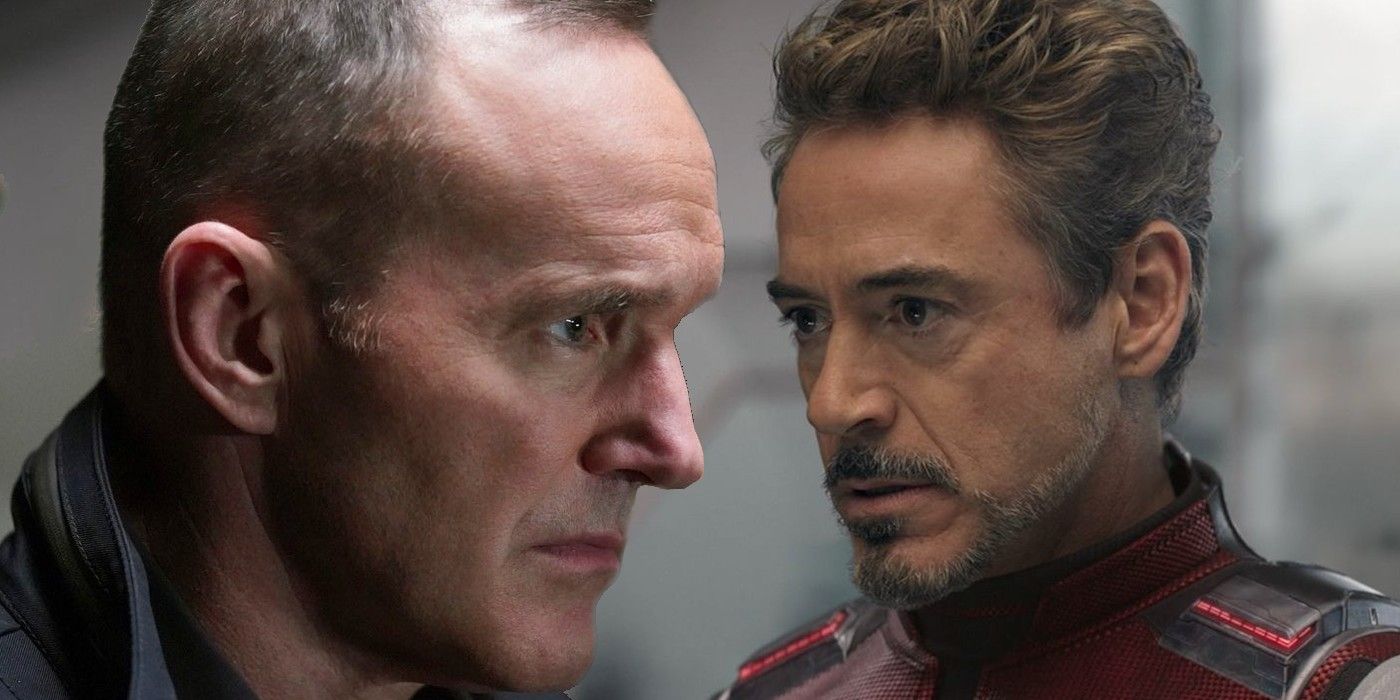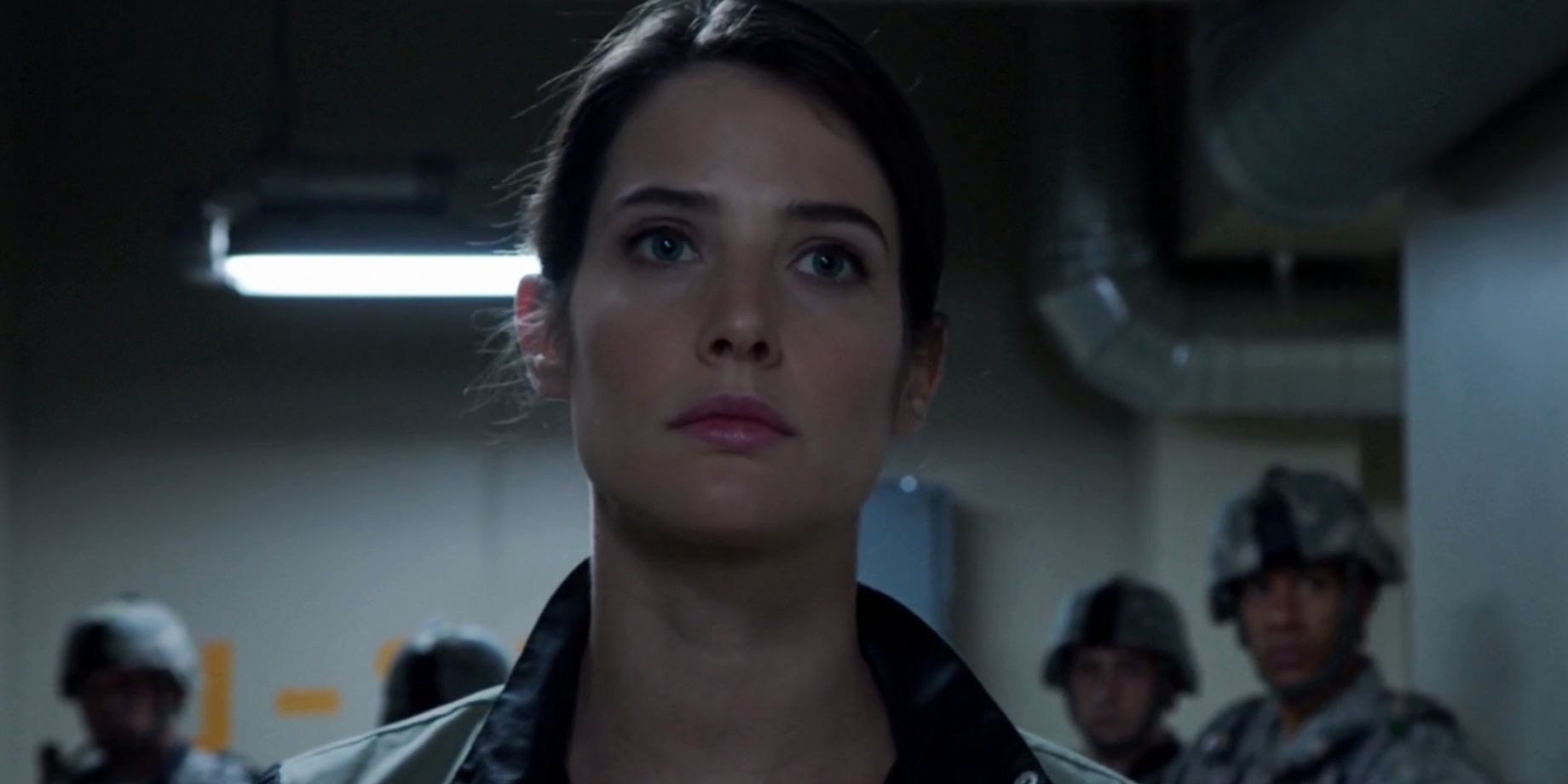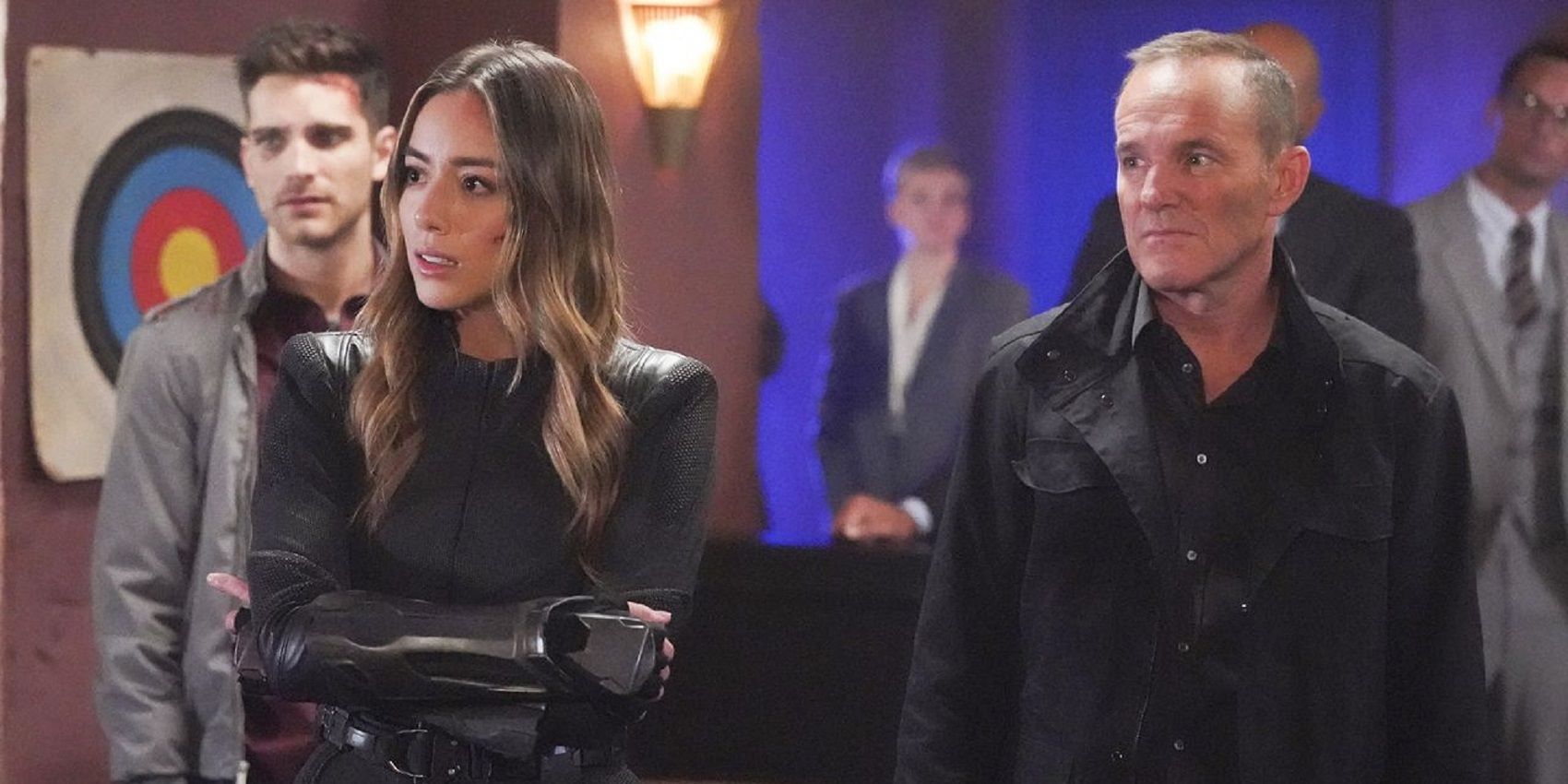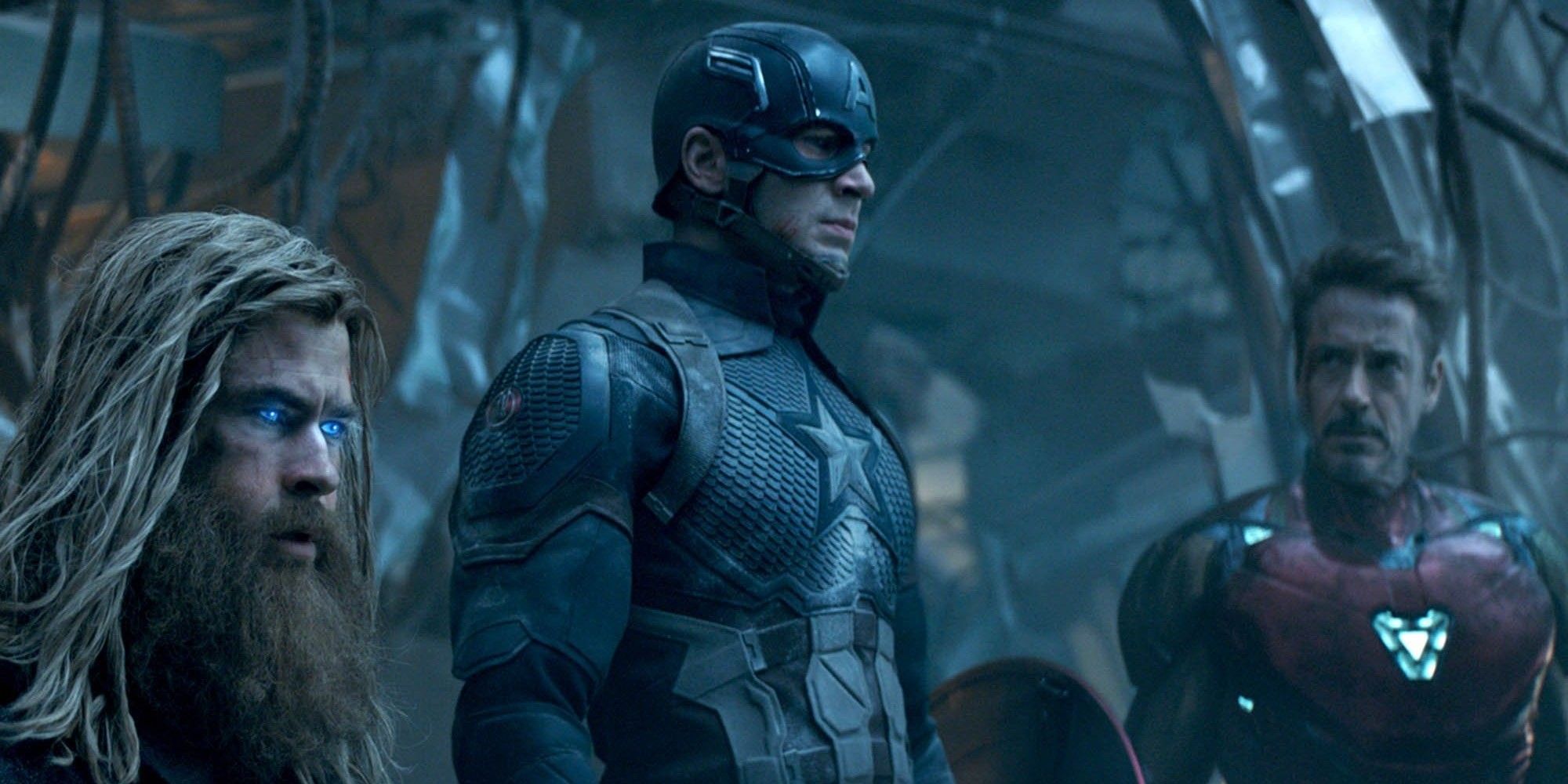The final moments of Agents of SHIELD would completely contradict Avengers: Endgame if the show was still set in the MCU's main timeline, which it probably isn't. Premiering in 2013, Agents of SHIELD continued the story of Clark Gregg's Phil Coulson from the Marvel movies, as the SHIELD team handled threats the Avengers weren't available for. Over the course of seven years and seven seasons, Agents of SHIELD has spun a tale of its own, encompassing virtual realities, HYDRA, deadly aliens and time travel. In other words, a typical SHIELD Wednesday afternoon.
Agents of SHIELD season 7 brought the ABC series to an emotional close, as the team traveled through the timeline to halt an alien invasion. Following the destruction of their own planet, the Chronicoms targeted Earth as a potential new home, only to find the planet was SHIELD-ed, triggering a literal race against time. The Chronicoms looked to erase their opponents from history and alter the timeline in their favor, but SHIELD followed every step of the way, desperately working (but wholly failing) to maintain the natural course of events.
Agents of SHIELD's two-part season finale lifted the lid on Fitz's grand plan to defeat Earth's invaders, and SHIELD successfully completed one final mission together before going their separate ways. A largely feel-good ending, the episode nimbly tied up Agents of SHIELD's remaining loose ends and provided much-needed emotional resolution, but there's still one aspect that requires unpicking. Predictably, the time travel and MCU connections remained somewhat ambiguous as Agents of SHIELD bowed out, but viewers can at least be sure of one thing - SHIELD aren't in Kansas anymore.
Agents Of SHIELD's Previous Relationship With The MCU
When the Agents of SHIELD adventure began on the small screen, the show was very much envisioned as an expansion of the Marvel Cinematic Universe. Seasons 1 & 2 included cameo appearances from Samuel L. Jackson's Nick Fury, Cobie Smulders' Maria Hill, and Jamie Alexander's Lady Sif, all of which tie Agents of SHIELD explicitly to the MCU movies. Furthermore, the series dropped references to virtually every Avenger throughout its run, even in the final season with nods to Loki and Bruce Banner. The early days of SHIELD also closely followed the MCU's overarching storylines, dealing with the aftermath of the Battle of New York and Thor: The Dark World, as well as integrating fully with the events of Captain America: The Winter Soldier.
This relationship proved unsustainable. As the MCU widened with each new cinematic release, the shared universe became more a hindrance than a help to Agents of SHIELD, which had very much transformed into its own unique beast by its third and fourth seasons. Consequently, Agents of SHIELD became an MCU series more in spirit than reality, with the last major reference to movie events coming when Thanos' arrival on Earth (from Avengers: Infinity War) was alluded to in season 5. Despite broaching the idea of Thanos, Agents of SHIELD left that can of worms untouched, not acknowledging the Mad Titan's devastating snap whatsoever.
Agents of SHIELD had already delved into time travel at this point with the destroyed-Earth future caused by Graviton, so it was assumed that a separate timeline had been created by this, free from the constraints of the movies. When SHIELD time-traveled again in season 7, Kora confirmed that their exploits had spawned another new world where she survived, Mack's parents died, and Nathaniel Malick became a supervillain.
How Agents Of SHIELD's Ending Contradicts Avengers: Endgame
2020 hasn't been a good year in real life, but it wasn't exactly one to remember in the MCU either. Following the events of Avengers: Infinity War, Thanos snapped half of all life out of existence, causing seismic ramifications across the universe. The opening act of Avengers: Endgame shows Earth ravaged by those aftereffects - an almost dystopian future of abandoned homes, broken families and Captain America therapy sessions. These events are set five years after the snap in 2023, so it would be logical to expect even more misery and disarray 3 years prior.
Agents of SHIELD season 7's final scenes offer a "one year later" look at the show's main characters in 2020, and the world is very clearly not the one Paul Rudd was left wandering through in Avengers: Endgame. SHIELD are a fully-functioning organization once again, even reopening their illustrious academy and rebuilding their fleet of helicarriers. Meanwhile, Daisy, Kora and Sousa are laying the foundations for SWORD by acting as Earth's intergalactic liaison. Prior to season 7, it might've just been feasible to argue that Agents of SHIELD's narrative was still taking place pre-snap, but the 2020 glimpsed at the end of the series is impossible to reconcile with the MCU. If SHIELD were back up and running, they'd be actively dealing with the snap's aftermath, and the same goes for Daisy's team in space. The all-encompassing snap that still had the world on its knees in the MCU's 2023 isn't even a factor in Agents of SHIELD's 2020, where everyone is smiling, hopeful and getting on with business as usual.
This scene also contradicts Spider-Man: Far From Home, in which Nick Fury is starting his own version of SWORD and sends two Skrulls disguised as himself and Maria Hill to deal with the threat of Mysterio on Earth. With Spider-Man: Far From Home taking place in 2024, Mack's rebuilt SHIELD surely would've involved themselves in the Elemental problem had they existed.
Is Agents Of SHIELD Set Within The MCU?
Predictably, the answer is both "yes" and "no." It's clear that Agents of SHIELD does not end within the Marvel Cinematic Universe as fans know it, but this leaves two vital questions unanswered: what world does Agents of SHIELD's time jump take place in, and did the series ever actually exist in the same continuity as the MCU movies? Unfortunately, there's no clear-cut answer to this timeline riddle, but there are helpful hints towards several different possibilities.
One potential explanation is that Agents of SHIELD began as part of the main MCU timeline, but for some reason splintered into a separate continuity. The ABC series follows the MCU up to a point - Loki attacks Earth, Coulson is killed, Malekith appears in London, HYDRA destroy SHIELD, and Thanos appears. These events follow Agents of SHIELD to the final few episodes of season 5, at which point the MCU connections appear to simply cease. It's possible that, as theorized as the time, SHIELD's trip to the future in season 5 created a new timeline for the series, one in which Thanos is dealt with before he can ever make the snap. Perhaps Peter Quill needed the bathroom and was left behind. This is the world they come back to when SHIELD return to their own timeline in season 7's finale - one where 2020 is snap-free. Essentially, this would mean Agents of SHIELD takes place across three separate time streams - the original MCU between seasons 1-5, a splinter timeline caused by time travel in season 6, and the timeline Fitz made in season 7, before eventually returning to the splinter timeline.
Another fascinating possibility is that Agents of SHIELD never took place in the MCU at all. In the series finale, Fitz helpfully reintroduces the idea of the Quantum Realm, the same plane of reality the Avengers use for their Time Heist. This reference suggests that the entirety of Agents of SHIELD takes place in a universe with a very similar history to the MCU, but not entirely the same, with the most notable difference being the lack of an Infinity Gauntlet snap. If this theory were true, Agents of SHIELD only ever takes place in two worlds: the show's main timeline, which is a close facsimile of the MCU, and the Fitz timeline in season 7 now protected by one Deke Shaw. Not only is this the simplest of the two explanations, but it also covers any other plot holes between Agents of SHIELD and the wider MCU, such as none of the Avengers finding out Coulson survived - because in their timeline, he didn't.
Thanks to the wonders of the Quantum Realm, the door remains open for any of the Agents of SHIELD cast to appear in future MCU movies. The franchise is set to open up the multiverse in Phase 4, and however the various timelines are arranged, Agents of SHIELD is part of that universe. As demonstrated by the series finale, however, Agents of SHIELD is now a distant cousin to the MCU, rather than a direct relation.




